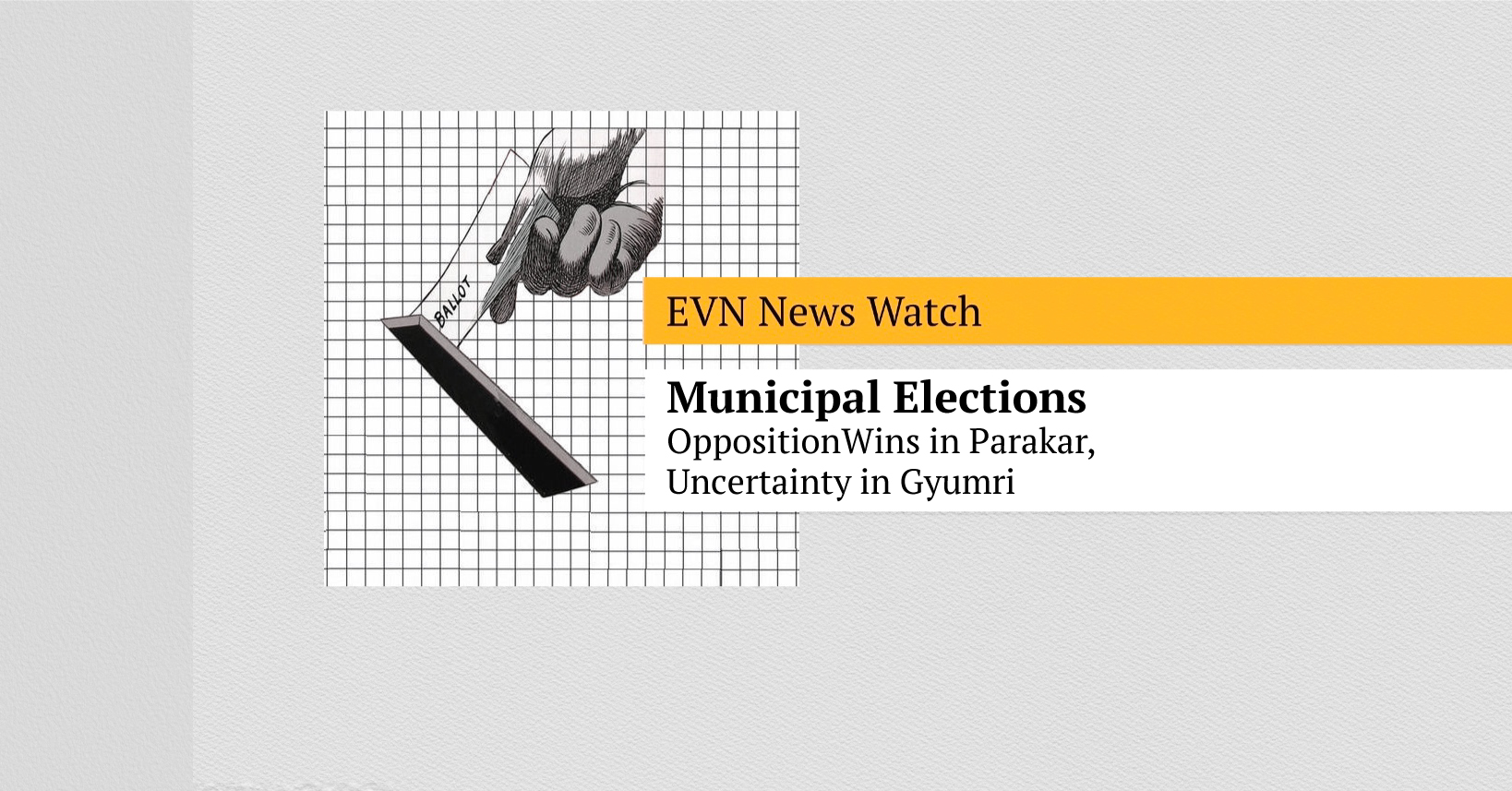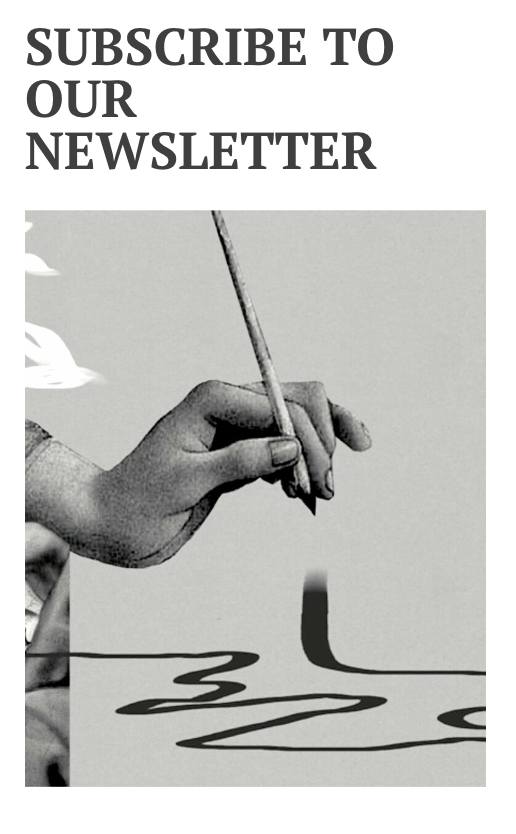
Listen to the article.
Editor’s Note: This article was updated on April 7 to reflect new developments and will be periodically updated as the situation unfolds.
On March 30, residents of Gyumri, Armenia’s second largest city and the small town of Parakar, just outside the capital Yerevan, headed to the polls in snap municipal elections. To secure council seats, parties needed at least 4% of the vote, while alliances required 6%. Based on preliminary results, the ruling Civil Contract Party did not secure enough votes to elect mayors in either town.
In Parakar, the opposition Unity Bloc, in a decisive victory received over 56% of the votes, meaning it will not need to form a coalition with any other bloc or party to elect a mayor. Civil Contract came in second with a little over 31% of the votes.
The picture is very different in Gyumri, where Prime Minister Nikol Pashinyan’s Civil Contract Party did come in first; however, it received only 36% of the votes. This means that if they want to elect their candidate as mayor, they will need the support of opposition council members. At this stage that seems unlikely as the opposition blocs and parties are more likely and in a better position to form a coalition and elect a mayor, given that their cumulative votes exceed 50%.
In both Gyumri and Parakar, the newly convened city councils will have to elect a mayor during their first council session, which is set to take place ten days after the elections. If they fail to elect a mayor during the first session, they must do so within two weeks; otherwise, there will be a second round of elections.
Gyumri
The election campaign in Gyumri was marred by investigations into vote-buying and bribery by the opposition, as well as allegations of the misuse of administrative resources by the incumbent and Civil Contract candidate, Sarik Minasyan.
According to the Central Electoral Commission (CEC), 47,443 people participated in the Gyumri municipal elections. Based on preliminary results from 82 precincts, this is the breakdown of the votes:
- Civil Contract Party: 17,183 votes (36.21%)
- Communist Party of Armenia: 9,727 votes (20%)
- Mother Armenia Alliance: 2,902 votes (6.11%)
- Our City Alliance: 7,380 votes (15.5%)
- My Strong Community Party: 3,734 votes (7.9%)
The Country to Live party, the Armenian Workers’ Socialist Party, the Euro-Alliance bloc and the Democratic Alternative party did not pass the threshold.
The Gyumri City Council consists of 33 seats. To secure the election of their candidate, parties or alliances must secure the votes of at least 17 city council members. On April 6, the Central Electoral Commission summarized the final results of the elections. Based on the final distribution of seats, Civil Contract will receive 14 seats, the Communist Party will receive 8, the Our City Alliance will receive 6, the My Strong Community Alliance will receive 3, and the Mother Armenia alliance will receive 2 seats.
Civil Contract will need to secure three additional seats to elect their candidate, Sarik Minasyan, as mayor. However, if the opposition parties unite behind one candidate, they can elect him with 19 votes.
The day after the elections, two opposition figures—Ruben Mkhitaryan of the My Strong Community Party and Karen Simonyan of the Mother Armenia Alliance—publicly announced their support for opposition candidate Vardan Ghukasyan. Meanwhile, Martun Grigoryan of the Our City Alliance did not indicate whether he would back Ghukasyan for several days after the elections, only declaring his position on the evening of March 31, when he stated, “Gyumri will not have a Civil Contract mayor.” Ghukasyan had publicly expressed hope that Grigoryan would join forces with him, as his support was necessary to secure a majority. However, media reports pointed to a possible feud between the two, raising doubts about a potential alliance.
On Friday, April 4, Grigoryan announced that he would support Ghukasyan by providing him with the seats needed to be elected mayor. Yet, his endorsement came with reservations. He voiced concerns that Ghukasyan might not be the best candidate for the opposition to rally behind.
“During the campaign, I openly stated—and I was the only one to do so—what could happen after the election if Vardan Ghukasyan were elected mayor,” Grigoryan wrote in a Facebook message. “I still believe he is the most vulnerable candidate due to the criminal case against him.” He cited the example of Vanadzor, where opposition figure Mamikon Aslanyan was elected mayor in 2021 but was unable to assume office due to criminal charges and subsequent detention.
Grigoryan added that since the other opposition forces in Gyumri had thrown their support behind Ghukasyan, he was left with little choice but to “make a decision that everyone has been fundamentally opposed to.”
The first session of Gyumri’s newly elected city council is set to take place on April 16, when council members will vote to elect a mayor.
To clarify the political landscape and the likelihood of coalition formation, here is a breakdown of the forces that passed the threshold for the Gyumri City Council:
Civil Contract: Sarik Minasyan
The ruling Civil Contract party was represented by acting mayor Sarik Minasyan, who was elected during the primary elections in December. Minasyan served as a Member of Parliament from 2019 to 2021 as part of the Bright Armenia faction. From 2022 to 2024, he was the Head of the Gyumri Territorial Center of the Unified Social Service of Armenia. In the previous municipal election in Gyumri in 2021, Civil Contract secured 29% of the vote.
Communist Party: Vardan Ghukasyan
Vardan Ghukasyan, the former mayor of Gyumri, came in second during the elections. Ghukasyan served as mayor from 2000 to 2012 and was elected as a Member of Parliament under the Tsarukyan party alliance in 2017 and again in 2018 under the Prosperous Armenia Party. A controversial figure, Vardan Ghukasyan is facing criminal charges for illegal appropriation of property. He is also accused of illegally privatizing land plots in Gyumri.
In addition to the criminal charges already filed against him, Ghukasyan faced new charges on April 1, this time for allegedly forcing individuals to attend his campaign rallies.
Just days before the elections, an audio recording surfaced, in which Ghukasyan is allegedly heard discussing plans to organize a meeting with workers from one of Gyumri’s markets. He also reminded them that he had once provided them with booths, which they are still using to support their families. The recording includes offensive language and harsh expressions.
After the elections, the front runner to become the Gyumri mayor found himself at the center of yet another controversy. During a briefing with reporters, Ghukasyan made inflammatory remarks, claiming that he could not avoid “sinning” when girls were exposing their bare legs.
Ghukasyan also made disturbing remarks about the LGBTQ community. He told a reporter who had asked whether Vardanyan would tolerate LGBT parades, “You too, if you hate LGBT people, come stand by my side, and you’ll see what I’ll do to the LGBT community.” He went further, stating he would shoot any priest within the church who conducted same-sex marriages.
These statements have been met with strong condemnation by civil society representatives and NGOs.
Mother Armenia Alliance: Karen Simonyan
The third force to pass the threshold for the Gyumri city council is the Mother Armenia Alliance headed by businessman Karen Simonyan. The alliance currently has 12 members in the Yerevan municipality. The alliance was founded in 2023 by Andranik Tevanyan, a member of the opposition Armenia alliance, who gave up his parliamentary mandate to run in the September 2023 Yerevan municipal elections.
Our City Alliance: Martun Grigoryan
Martun Grigoryan, the leader of the Our City Alliance, is a former member of both the Prosperous Armenia and Republican parties. He is currently a member of the opposition I Have Honor parliamentary faction.
My Strong Community Alliance: Ruben Mkhitaryan
Ruben Mkhitaryan leads the My Strong Community Alliance, which has also gained enough votes to secure representation in the Gyumri City Council. Mkhitaryan served as the chief producer at Armenia TV until 2019.
Parakar
In the much smaller community of Parakar, three political forces passed the required threshold for the city council.
In a decisive victory, the opposition Unity Alliance secured 56.45% of the votes. Civil Contract came in second with 31.8%, followed by the National Progress Party with 7.7%. The seat distribution in the Parakar city council will look as follows: the Unity alliance will have 12 mandates, Civil Contract will receive seven, and the National Progress party two mandates.
The ruling Civil Contract Party was represented by Lyudvig Gyulnazaryan, former head of the Parakar community, who was elected acting mayor during the primary elections in January. Gyulnazaryan had resigned in November 2024 following his involvement in a criminal investigation.
The Unity Party Alliance is headed by Volodya Grigoryan, a member of the Country to Live party and a current member of the Parakar community council.
The National Progress party is headed by former Parakar Mayor Davit Minasyan. Minasyan resigned in May 2024. Back in 2021, Minasyan’s alliance, and the Civil Contract Party, struck an agreement where Minasyan would lead the community for 2.5 years before stepping down for Gyulnazaryan to take over.
With a decisive share of the vote, the Unity Party will be able to elect Volodya Grigoryan as mayor without the need for coalition talks. However, given the administration’s history of not tolerating opposition mayors, it remains to be seen how the situation will unfold in Parakar.
News Watch
Deja Vu in Gyumri: Controversial Former Mayor Returns
Vardan Ghukasyan, a controversial former mayor under criminal investigation, has returned to power in Gyumri with the backing of opposition factions, despite finishing second in the vote. The ruling party boycotted the vote and warned of an impending political crisis. Hranoush Dermoyan looks at Ghukasyan’s murky past.
Read moreArmenia and Azerbaijan Conclude Peace Talks
Armenia and Azerbaijan have finalized peace negotiations, with Yerevan accepting Baku’s proposals on the withdrawal of third-party forces on the border and all international legal claims. However, Baku insists Armenia amend its constitution to remove alleged territorial claims as a prerequisite to signing a peace treaty.
Read moreSlower Growth, Booming Trade, Declining Births: Armenia in 2024
Armenia’s economy continued to grow in 2024, though at a slower pace, while foreign trade surged. Inflation remained low, and employment reached record levels. However, birth rates declined significantly, and net migration remained negative, reflecting broader demographic shifts. Hovhannes Nazaretyan explains.
Read morePrimer: Armenia’s Ongoing Military Reforms
Armenia's ongoing military reforms, initiated after the 2020 Artsakh War, focus on modernizing and professionalizing the Armed Forces to meet the country’s security challenges. The newly released 10-year Concept outlines strategies for structural transformation, improving education, incentivizing service and enhancing civilian oversight.
Read moreTrump 2.0 and Armenia: What We Know and What to Expect
Donald Trump’s return to the White House could profoundly impact U.S.-Armenia relations, raising questions about the strategic partnership, regional alliances, and the influence of his administration’s key figures on Armenian issues. Hovhannes Nazaretyan explains.
Read more






